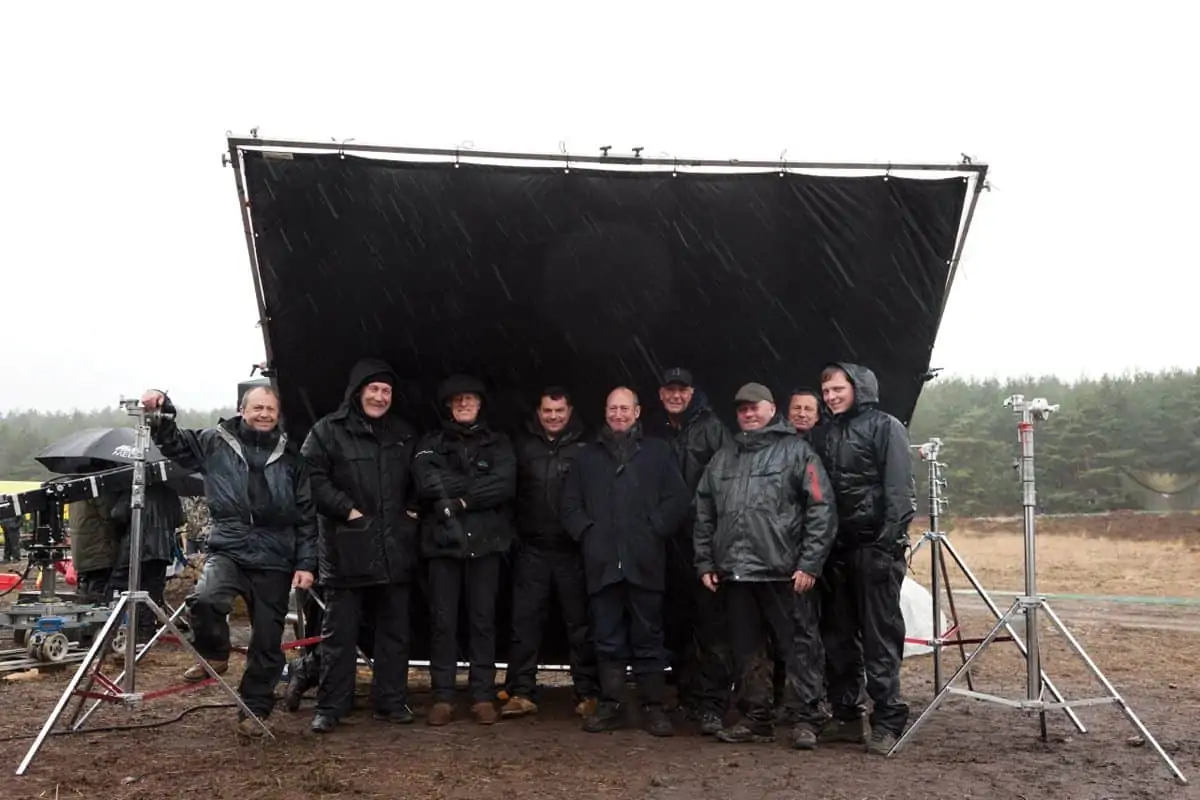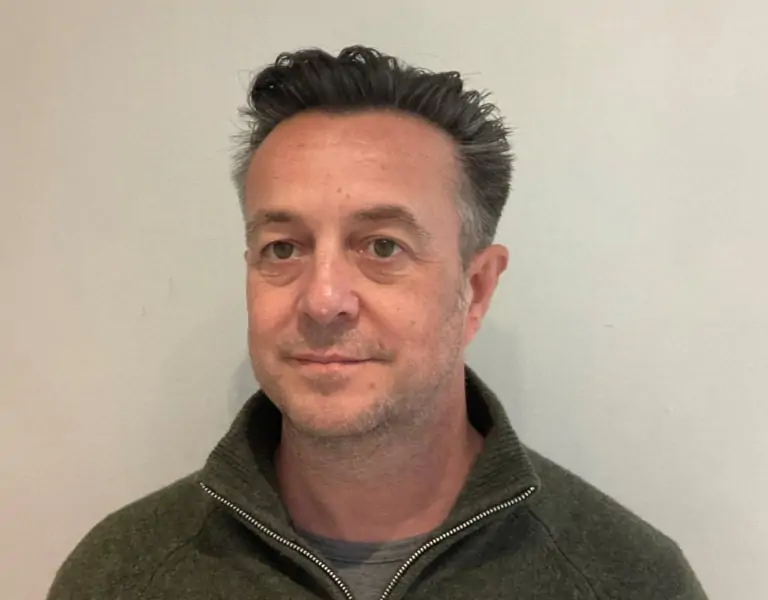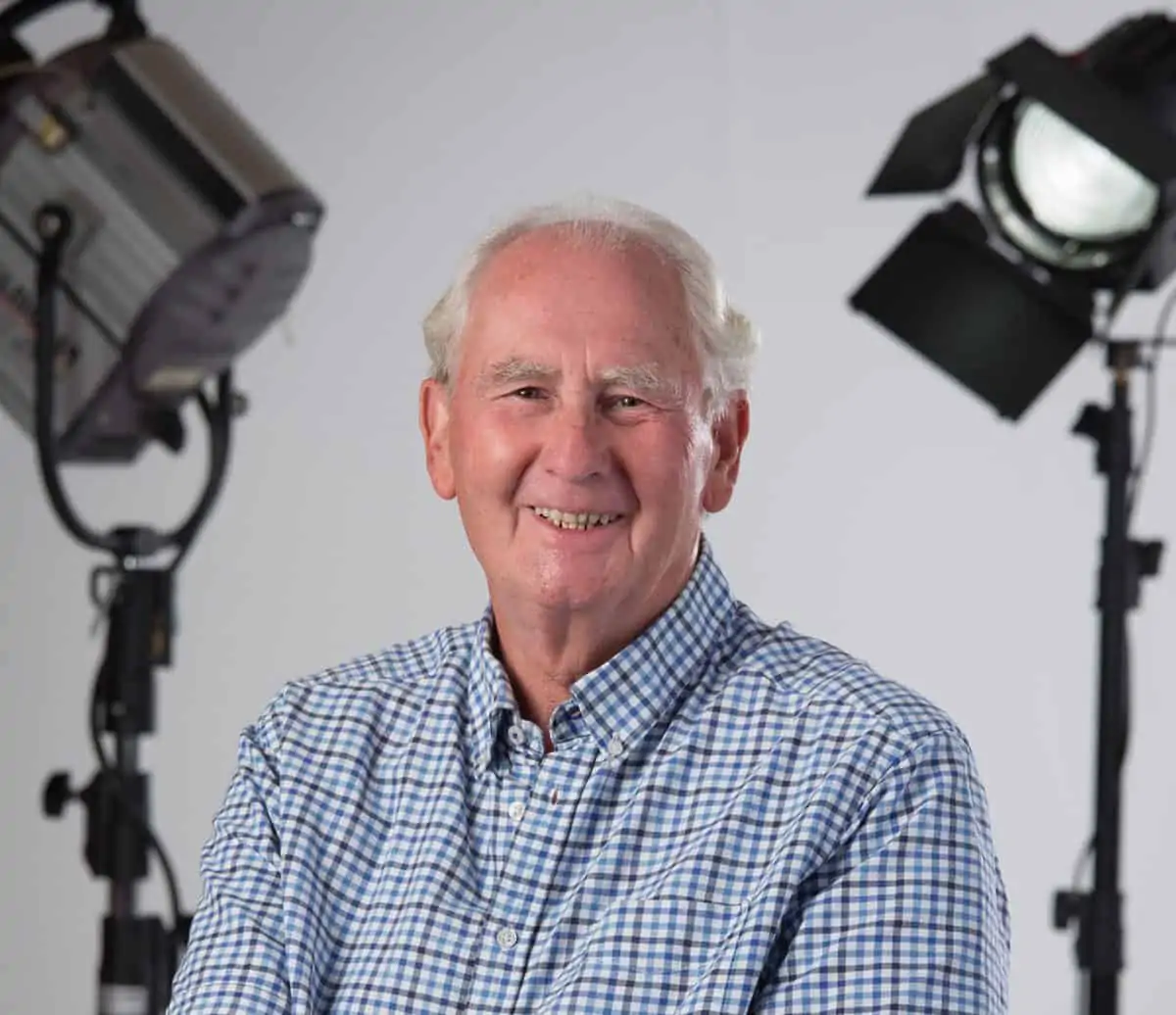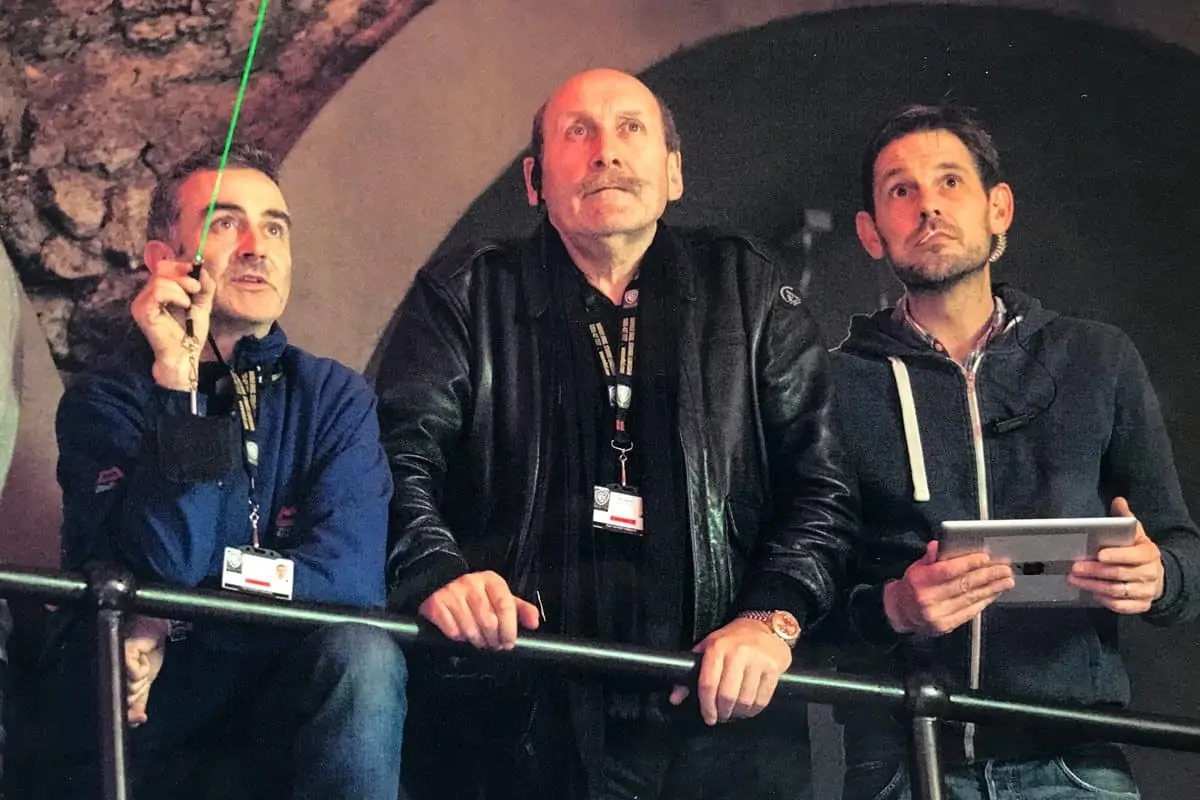Still Workin' It
Innovators / John Buckley & John Venables / Movietech
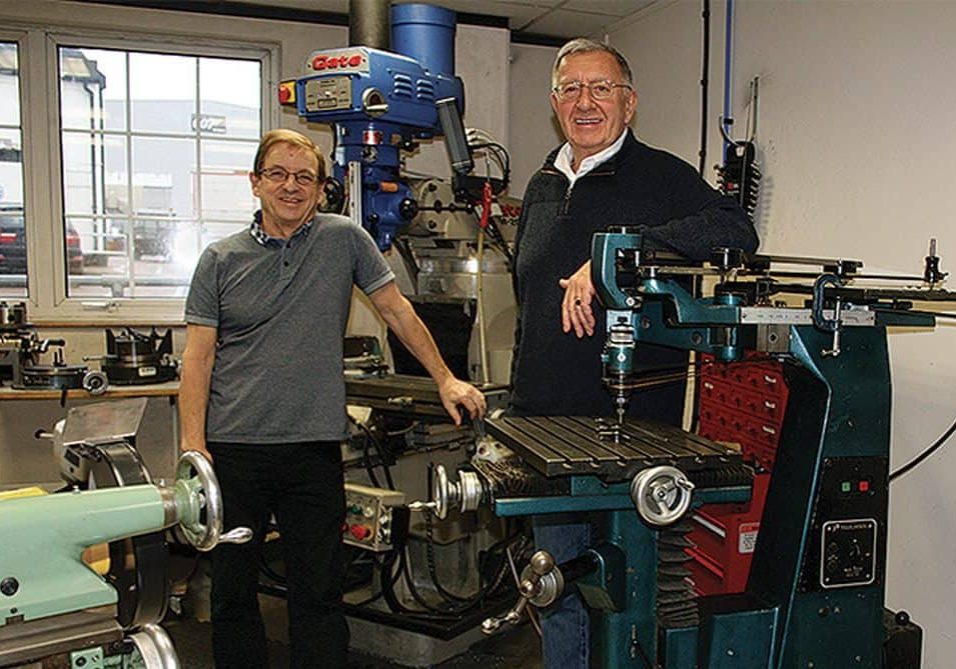
Still Workin' It
Innovators / John Buckley & John Venables / Movietech
BY: Kevin Hilton
Movietech is among the UK's leading camera and accessories rental houses for movie production. It has also been responsible for producing customised equipment for specific purposes and films, with much of it becoming industry standard.
Company founders John Buckley and John Venables learned their craft at Samuelson's and JDC before striking out on their own. They talk to Kevin Hilton about their innovations and how – even now – they are still working engineers.
How did the two of you meet?
JB: We both started as young men at Samuelson Film Services. We were in the Vicarage under Bill Vickers, who was a great camera engineer. I joined in May 1967 as an engineer and John [Venables] in November that year as a camera engineering apprentice.
What were your backgrounds?
JB: Before Samuelson's I was a five-year apprentice doing my City & Guilds in mechanical engineering. I'd been working as an engineer for a big company at Park Royal and then was lucky to get a job in the machine shop at Samuelson's. I had a fair bit to do with camera maintenance – it was interesting and I got more involved in it – after which I was offered a job. I was taught a lot and gained a lot of knowledge at Samuelson's. Sometimes it was a case of making mistakes and then not making them again.
JV: When I left school my father set up an interview for me with Sidney Samuelson and I got the job a week before my 16th birthday. I went straight into Samuelson's as an apprentice in the camera department. At that time cameras and lenses were two separate departments.

Movietech is known as a camera supplier, but it does have a particular reputation for lenses. When did your interest in optics begin?
JB: We both joined Joe Dunton Cameras (JDC) in 1976, me in March of that year and John after that. We helped develop an awful lot of stuff and were very involved in Anamorphic lenses. One of the big successes with that was Star Wars: Episode VI - Return Of The Jedi (1983, DP Alan Hume BSC).
JV: For first two three years at JDC we were working with normal, spherical lenses, learning how to repair them and adapting them to what people wanted. Then we were approached by someone in Japan about Anamorphic lenses. We produced a set based on Cooke Primes, which were used on two or three different movies, including Jedi. They were the first set of Anamorphics at the time that looked really sharp because, until then, it had been a bit hit and miss. Nobody knew how to adapt Anamorphic lenses and alter them to make them sharp. Joe Dunton had the idea of going to Japan and it was from there that we learned how to adjust the lenses. We then produced a 3:1 Anamorphic zoom, which was a move forward. After Return Of The Jedi we did lots of films with those lenses, including Legend (1985, DP Alex Thomson BSC).
JB: We learned how to fine-tune them and were learning about optics every day. You can be tied down to tolerances and at Samuelson's they had been very wide. We tightened them down to seven tenths of a 1,000th, which made a hell of a difference.
JV: What also changed was how the lens and camera departments worked with each other. At one time they had been separate, with the camera set-up to one tolerance and the lenses to another. At JDC it was one person doing the same thing, a procedure that others followed afterwards.

"If something goes down on-set then we can make a replacement or new unit straight away."
- John Buckley
Through JDC and then Panavision with Joe Dunton still in charge, how much input did you have into the developments being made?
JB: We were involved in everything in those days. We were the practical guys in the background and Joe came up with the ideas. He was the figurehead with other people in the background making it work.
JV: We sorted out the details and made them work. But we came up with ideas as well.
When did you finally decide to go out on your own?
JB: I left Panavision first, in 1991. I was managing director at the time and Joe Dunton had gone on to other things.
JV: I took over as joint-MD of Panavision and joined John in his new venture in 1998, after it had been renamed Movietech in 1997.
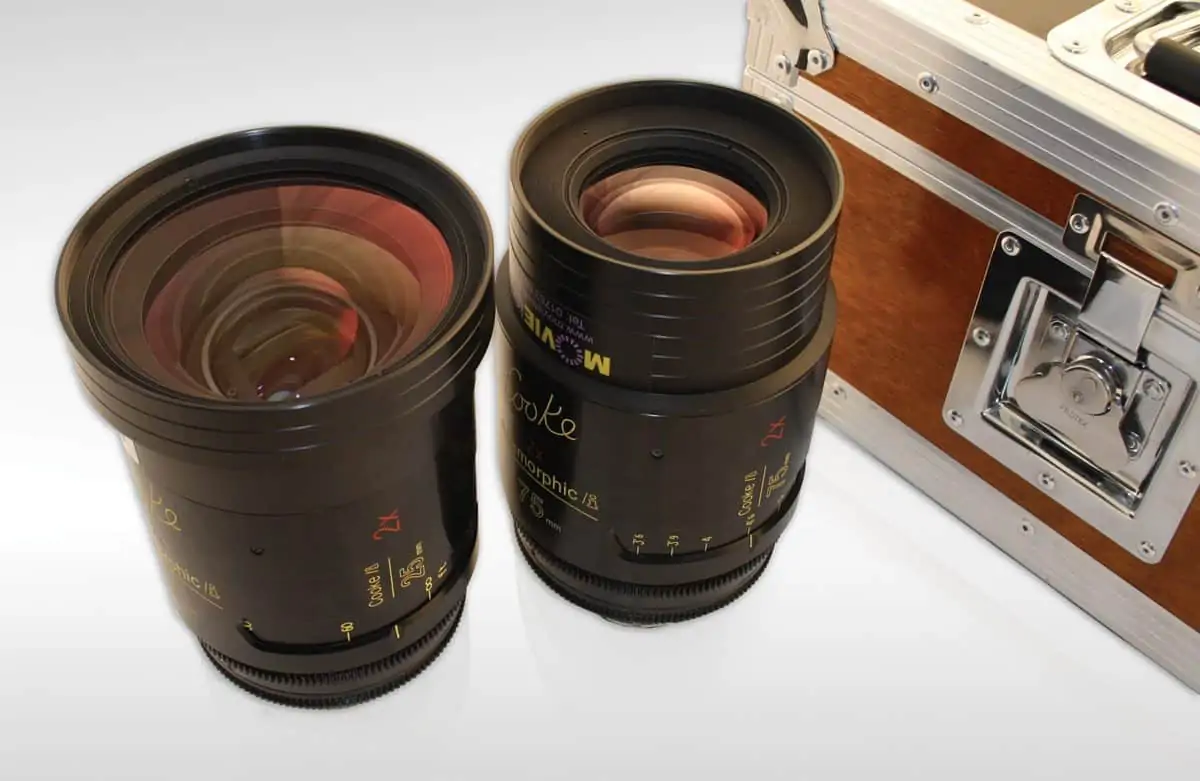
What has been your approach with the services Movietech offers?
JB: We'd made so much stuff over the years and had so many ideas. Film crews were asking for things and that's something that has continued. Recently we have done some major engineering work on the Sony F65 with the viewfinder and the power supply, as well as producing accessories that it didn't have before. When we take delivery of a camera that's only the start. A lot of companies don't listen to the film crew, but we do. We can see the problems with cameras as soon as we take delivery and can make improvements.
JV: Crews want stuff made up for them and we can do that straight away, for example taking an idea and making something that is better for focus pullers to use.
What is your particular area of interest right now?
JB: John has been working on a lot of specialised lenses over the last two to three years. We've been Anamorphising macro lenses and have quite a big range of unusual lenses and special requests now.
JV: We introduced the marco zoom six months ago – there's only one other available. There is also a 200mm Anamorphic Cooke-based lens, which has full control over the focus and is the only one in the world. We get asked for longer lenses and it's something we've decided to do. What we've done is something that is simple and compact with the ability to control focus with no focus shift. The focus also goes down to two feet, which is very close for that size.

Where is your main interest at the moment, lenses or cameras?
JB: We are quite a capital-intensive company and in the last few years we've concentrated on lenses. We find the camera side quite confusing because the developments happening so fast and often. From our point of view lenses are timeless. Take a production like Mr Turner (2014, DP Dick Pope BSC), shot on Cooke Speed Panchros, which are 40-year old lenses. A lens is expensive, but it is a long-term investment. The problem with cameras at the moment is that large format seems to be in, but we're not sure about that, mainly because of the lack of lenses for the format. You could easily spend a couple of thousand pounds and pick the wrong one, so we'll wait and see. We do have a large inventory of cameras, though.
Where do you see the market and Movietech going in the future?
JV: We like lenses and will buy the cameras that are popular.
JB: We're remounting classic lenses, which give a unique look, only in a modern housing. It's all on-going.




